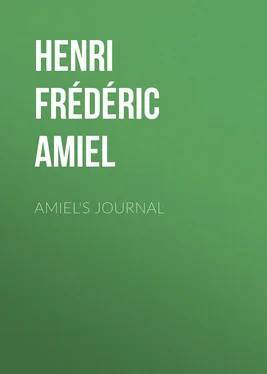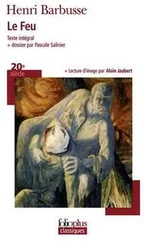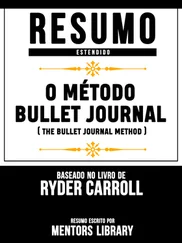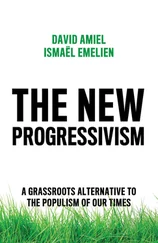Henri Frédéric Amiel - Amiel's Journal
Здесь есть возможность читать онлайн «Henri Frédéric Amiel - Amiel's Journal» — ознакомительный отрывок электронной книги совершенно бесплатно, а после прочтения отрывка купить полную версию. В некоторых случаях можно слушать аудио, скачать через торрент в формате fb2 и присутствует краткое содержание. Издательство: Иностранный паблик, Жанр: literature_19, foreign_antique, foreign_prose, Зарубежные любовные романы, на английском языке. Описание произведения, (предисловие) а так же отзывы посетителей доступны на портале библиотеки ЛибКат.
- Название:Amiel's Journal
- Автор:
- Издательство:Иностранный паблик
- Жанр:
- Год:неизвестен
- ISBN:нет данных
- Рейтинг книги:5 / 5. Голосов: 1
-
Избранное:Добавить в избранное
- Отзывы:
-
Ваша оценка:
- 100
- 1
- 2
- 3
- 4
- 5
Amiel's Journal: краткое содержание, описание и аннотация
Предлагаем к чтению аннотацию, описание, краткое содержание или предисловие (зависит от того, что написал сам автор книги «Amiel's Journal»). Если вы не нашли необходимую информацию о книге — напишите в комментариях, мы постараемся отыскать её.
Amiel's Journal — читать онлайн ознакомительный отрывок
Ниже представлен текст книги, разбитый по страницам. Система сохранения места последней прочитанной страницы, позволяет с удобством читать онлайн бесплатно книгу «Amiel's Journal», без необходимости каждый раз заново искать на чём Вы остановились. Поставьте закладку, и сможете в любой момент перейти на страницу, на которой закончили чтение.
Интервал:
Закладка:
November 8, 1852.—Responsibility is my invisible nightmare. To suffer through one’s own fault is a torment worthy of the lost, for so grief is envenomed by ridicule, and the worst ridicule of all, that which springs from shame of one’s self. I have only force and energy wherewith to meet evils coming from outside; but an irreparable evil brought about by myself, a renunciation for life of my liberty, my peace of mind, the very thought of it is maddening—I expiate my privilege indeed. My privilege is to be spectator of my life drama, to be fully conscious of the tragi-comedy of my own destiny, and, more than that, to be in the secret of the tragi-comic itself, that is to say, to be unable to take my illusions seriously, to see myself, so to speak, from the theater on the stage, or to be like a man looking from beyond the tomb into existence. I feel myself forced to feign a particular interest in my individual part, while all the time I am living in the confidence of the poet who is playing with all these agents which seem so important, and knows all that they are ignorant of. It is a strange position, and one which becomes painful as soon as grief obliges me to betake myself once more to my own little rôle , binding me closely to it, and warning me that I am going too far in imagining myself, because of my conversations with the poet, dispensed from taking up again my modest part of valet in the piece. Shakespeare must have experienced this feeling often, and Hamlet, I think, must express it somewhere. It is a Doppelgängerei , quite German in character, and which explains the disgust with reality and the repugnance to public life, so common among the thinkers of Germany. There is, as it were, a degradation a gnostic fall, in thus folding one’s wings and going back again into the vulgar shell of one’s own individuality. Without grief, which is the string of this venturesome kite, man would soar too quickly and too high, and the chosen souls would be lost for the race, like balloons which, save for gravitation, would never return from the empyrean.
How, then, is one to recover courage enough for action? By striving to restore in one’s self something of that unconsciousness, spontaneity, instinct, which reconciles us to earth and makes man useful and relatively happy.
By believing more practically in the providence which pardons and allows of reparation.
By accepting our human condition in a more simple and childlike spirit, fearing trouble less, calculating less, hoping more. For we decrease our responsibility, if we decrease our clearness of vision, and fear lessens with the lessening of responsibility.
By extracting a richer experience out of our losses and lessons.
November 9, 1852.—A few pages of the Chrestomathie Française and Vinet’s remarkable letter at the head of the volume, have given me one or two delightful hours. As a thinker, as a Christian, and as a man, Vinet occupies a typical place. His philosophy, his theology, his esthetics, in short, his work, will be, or has been already surpassed at all points. His was a great soul and a fine talent. But neither were well enough served by circumstances. We see in him a personality worthy of all veneration, a man of singular goodness and a writer of distinction, but not quite a great man, nor yet a great writer. Profundity and purity, these are what he possesses in a high degree, but not greatness, properly speaking. For that, he is a little too subtle and analytical, too ingenious and fine-spun; his thought is overladen with detail, and has not enough flow, eloquence, imagination, warmth, and largeness. Essentially and constantly meditative, he has not strength enough left to deal with what is outside him. The casuistries of conscience and of language, eternal self-suspicion, and self-examination, his talent lies in these things, and is limited by them. Vinet wants passion, abundance, entraînement , and therefore popularity. The individualism which is his title to glory is also the cause of his weakness.
We find in him always the solitary and the ascetic. His thought is, as it were, perpetually at church; it is perpetually devising trials and penances for itself. Hence the air of scruple and anxiety which characterizes it even in its bolder flights. Moral energy, balanced by a disquieting delicacy of fibre; a fine organization marred, so to speak, by low health, such is the impression it makes upon us. Is it reproach or praise to say of Vinet’s mind that it seems to one a force perpetually reacting upon itself? A warmer and more self-forgetful manner; more muscles, as it were, around the nerves, more circles of intellectual and historical life around the individual circle, these are what Vinet, of all writers perhaps the one who makes us think most, is still lacking in. Less reflexivity and more plasticity, the eye more on the object, would raise the style of Vinet, so rich in substance, so nervous, so full of ideas, and variety, into a grand style. Vinet, to sum up, is conscience personified, as man and as writer. Happy the literature and the society which is able to count at one time two or three like him, if not equal to him!
November 10, 1852.—How much have we not to learn from the Greeks, those immortal ancestors of ours! And how much better they solved their problem than we have solved ours. Their ideal man is not ours, but they understood infinitely better than we how to reverence, cultivate and ennoble the man whom they knew. In a thousand respects we are still barbarians beside them, as Béranger said to me with a sigh in 1843: barbarians in education, in eloquence, in public life, in poetry, in matters of art, etc. We must have millions of men in order to produce a few elect spirits: a thousand was enough in Greece. If the measure of a civilization is to be the number of perfected men that it produces, we are still far from this model people. The slaves are no longer below us, but they are among us. Barbarism is no longer at our frontiers; it lives side by side with us. We carry within us much greater things than they, but we ourselves are smaller. It is a strange result. Objective civilization produced great men while making no conscious effort toward such a result; subjective civilization produces a miserable and imperfect race, contrary to its mission and its earnest desire. The world grows more majestic but man diminishes. Why is this?
We have too much barbarian blood in our veins, and we lack measure, harmony and grace. Christianity, in breaking man up into outer and inner, the world into earth and heaven, hell and paradise, has decomposed the human unity, in order, it is true, to reconstruct it more profoundly and more truly. But Christianity has not yet digested this powerful leaven. She has not yet conquered the true humanity; she is still living under the antimony of sin and grace, of here below and there above. She has not penetrated into the whole heart of Jesus. She is still in the narthex of penitence; she is not reconciled, and even the churches still wear the livery of service, and have none of the joy of the daughters of God, baptized of the Holy Spirit.
Then, again, there is our excessive division of labor; our bad and foolish education which does not develop the whole man; and the problem of poverty. We have abolished slavery, but without having solved the question of labor. In law there are no more slaves, in fact, there are many. And while the majority of men are not free, the free man, in the true sense of the term can neither be conceived nor realized. Here are enough causes for our inferiority.
November 12, 1852.—St. Martin’s summer is still lingering, and the days all begin in mist. I ran for a quarter of an hour round the garden to get some warmth and suppleness. Nothing could be lovelier than the last rosebuds, or than the delicate gaufred edges of the strawberry leaves embroidered with hoar-frost, while above them Arachne’s delicate webs hung swaying in the green branches of the pines, little ball-rooms for the fairies carpeted with powdered pearls and kept in place by a thousand dewy strands hanging from above like the chains of a lamp and supporting them from below like the anchors of a vessel. These little airy edifices had all the fantastic lightness of the elf-world and all the vaporous freshness of dawn. They recalled to me the poetry of the north, wafting to me a breath from Caledonia or Iceland or Sweden, Frithiof and the Edda, Ossian and the Hebrides. All that world of cold and mist, of genius and of reverie, where warmth comes not from the sun but from the heart where man is more noticeable than nature—that chaste and vigorous world in which will plays a greater part than sensation and thought has more power than instinct—in short the whole romantic cycle of German and northern poetry, awoke little by little in my memory and laid claim upon my sympathy. It is a poetry of bracing quality, and acts upon one like a moral tonic. Strange charm of imagination! A twig of pine wood and a few spider-webs are enough to make countries, epochs, and nations live again before her.
Читать дальшеИнтервал:
Закладка:
Похожие книги на «Amiel's Journal»
Представляем Вашему вниманию похожие книги на «Amiel's Journal» списком для выбора. Мы отобрали схожую по названию и смыслу литературу в надежде предоставить читателям больше вариантов отыскать новые, интересные, ещё непрочитанные произведения.
Обсуждение, отзывы о книге «Amiel's Journal» и просто собственные мнения читателей. Оставьте ваши комментарии, напишите, что Вы думаете о произведении, его смысле или главных героях. Укажите что конкретно понравилось, а что нет, и почему Вы так считаете.












